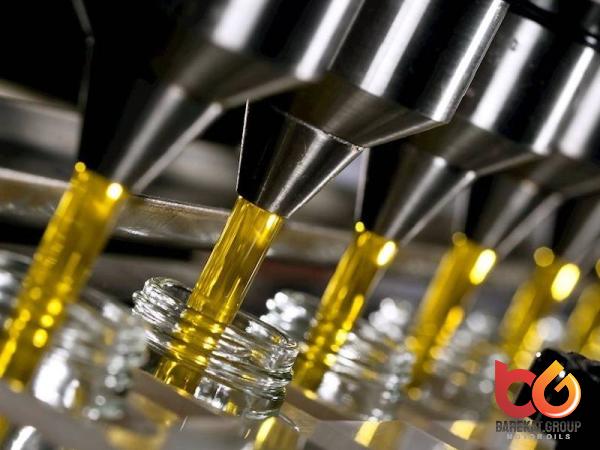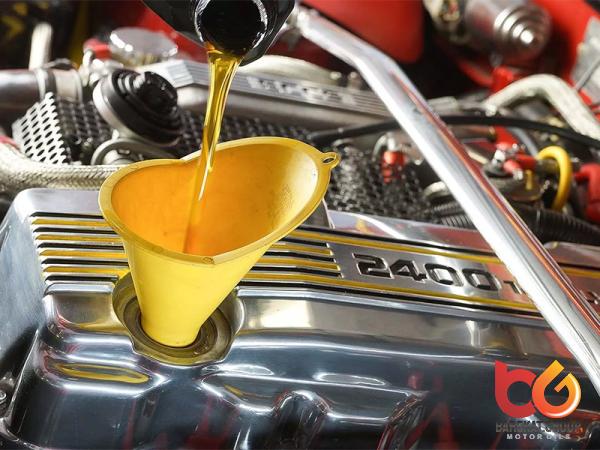Demystifying Viscous Engine Oils: A Comprehensive Summary Introduction: Viscous engine oils are an integral component of automotive lubrication systems, playing a crucial role in ensuring the smooth functioning of engines. The term “viscosity” refers to the resistance of a fluid to flow, and engine oils with specific viscosity ratings are designed to meet the complex demands of various engines. This article aims to provide a comprehensive summary of viscous engine oils, shedding light on their properties, functions, and benefits. 1. Understanding Viscosity: Viscosity is categorized into two main classes: dynamic viscosity and kinematic viscosity. Dynamic viscosity represents the resistance to flow caused by the fluid’s internal friction, while kinematic viscosity is the fluid’s resistance to pouring under gravity. In terms of engine oils, kinematic viscosity and its measurement at different temperatures are of primary concern. 2. Viscosity Grades and Ratings: Engine oils are classified by viscosity grades, which help to identify their flow characteristics under specific operating conditions. The Society of Automotive Engineers (SAE) uses a viscosity rating system, commonly seen as “XXW-XX,” where the first number indicates the oil’s low-temperature viscosity and the second number denotes its high-temperature viscosity. 3. Importance of Viscosity Selection: Choosing the right viscosity for your engine is vital, as it directly impacts engine efficiency, performance, and durability. High viscosity (thicker) oils provide better protection at elevated temperatures, while low viscosity (thinner) oils are preferred for cold starts and fuel efficiency. It is crucial to consult vehicle manufacturers’ recommendations to determine the optimal viscosity for your specific engine. 4. The Role of Viscous Engine Oils: Viscous engine oils serve various purposes in automotive engines: a. Lubrication: Engine oils form a protective film between moving parts, reducing friction, and wear. This lubricating action helps extend the lifespan of crucial engine components. b. Cooling: Engine oils contribute to heat dissipation by transferring heat away from critical engine parts. This cooling effect is particularly important in high-performance engines or under heavy loads. c. Cleaning: Modern engine oils contain detergents and dispersants that prevent the formation of harmful deposits and contaminants.
Engine oil
 This prevents engine sludge and keeps the engine clean over time. d. Sealing: The oil film created by engine oils provides a seal between pistons and cylinder walls, preventing combustion gases from escaping. This helps to maintain adequate compression and optimize engine performance. 5. Multigrade vs. Monograde Oils: Engine oils can be classified into two categories: multigrade and monograde oils. Monograde oils have a single viscosity grade, such as SAE 40, suitable only for a specific temperature range. In contrast, multigrade oils, such as the widely used SAE 5W-30, provide optimum performance in both hot and cold operating conditions. The addition of viscosity modifiers allows multigrade oils to adapt to different temperatures, offering enhanced versatility and protection. 6. Synthetic vs. Conventional Oils: Viscous engine oils are available in both synthetic and conventional formulations. Synthetic oils are chemically engineered to offer higher performance, optimal lubrication at extreme temperatures, improved fuel efficiency, and prolonged oil change intervals. Conversely, conventional oils are derived from crude oil and offer reliable protection but may require more frequent oil change intervals. 7. The Impact of Additives: Additives play a crucial role in enhancing the performance of engine oils. These include antioxidants, anti-wear agents, detergents, dispersants, viscosity modifiers, and friction modifiers. Each additive contributes to specific performance characteristics, such as oxidation resistance, carbon deposit prevention, wear protection, and reducing frictional losses. These additives ensure that engine oils can withstand the harsh demands placed upon them. 8. Regular Maintenance and Oil Change Intervals: Proper maintenance of engine oils is essential for maintaining optimal engine performance and longevity. Regular oil changes, as per the manufacturer’s recommendations, help to remove contaminants and replenish any additive packs that may have depleted over time. Neglecting regular oil changes can lead to reduced performance, engine sludge formation, and potential damage to critical engine components. 9. Environmental Considerations: With growing environmental concerns, the industry is increasingly focusing on eco-friendly engine oils. This has led to the development of low-viscosity oils that offer reduced frictional losses, resulting in enhanced fuel economy and lower greenhouse gas emissions.
This prevents engine sludge and keeps the engine clean over time. d. Sealing: The oil film created by engine oils provides a seal between pistons and cylinder walls, preventing combustion gases from escaping. This helps to maintain adequate compression and optimize engine performance. 5. Multigrade vs. Monograde Oils: Engine oils can be classified into two categories: multigrade and monograde oils. Monograde oils have a single viscosity grade, such as SAE 40, suitable only for a specific temperature range. In contrast, multigrade oils, such as the widely used SAE 5W-30, provide optimum performance in both hot and cold operating conditions. The addition of viscosity modifiers allows multigrade oils to adapt to different temperatures, offering enhanced versatility and protection. 6. Synthetic vs. Conventional Oils: Viscous engine oils are available in both synthetic and conventional formulations. Synthetic oils are chemically engineered to offer higher performance, optimal lubrication at extreme temperatures, improved fuel efficiency, and prolonged oil change intervals. Conversely, conventional oils are derived from crude oil and offer reliable protection but may require more frequent oil change intervals. 7. The Impact of Additives: Additives play a crucial role in enhancing the performance of engine oils. These include antioxidants, anti-wear agents, detergents, dispersants, viscosity modifiers, and friction modifiers. Each additive contributes to specific performance characteristics, such as oxidation resistance, carbon deposit prevention, wear protection, and reducing frictional losses. These additives ensure that engine oils can withstand the harsh demands placed upon them. 8. Regular Maintenance and Oil Change Intervals: Proper maintenance of engine oils is essential for maintaining optimal engine performance and longevity. Regular oil changes, as per the manufacturer’s recommendations, help to remove contaminants and replenish any additive packs that may have depleted over time. Neglecting regular oil changes can lead to reduced performance, engine sludge formation, and potential damage to critical engine components. 9. Environmental Considerations: With growing environmental concerns, the industry is increasingly focusing on eco-friendly engine oils. This has led to the development of low-viscosity oils that offer reduced frictional losses, resulting in enhanced fuel economy and lower greenhouse gas emissions.
Specifications of Engine oil
 Additionally, efforts are being made to produce engine oils with improved biodegradability and reduced levels of harmful substances, promoting a greener automotive industry. Conclusion: Viscous engine oils are far more than a mere lubricant for automotive engines. Understanding their viscosity grades, functions, and benefits goes a long way in optimizing engine performance, enhancing durability, and ensuring fuel efficiency. The right viscosity selection, adherence to oil change intervals, and consideration of environmental aspects contribute to a well-maintained and sustainable engine. By recognizing the importance of choosing and maintaining the appropriate engine oil for your vehicle, you can enhance its efficiency and prolong its lifespan.I. Importance of Choosing the Right Viscosity Choosing the correct viscosity for your engine is vital as it directly affects its performance and longevity. Engines are designed to operate optimally within specific temperature ranges, and using the wrong viscosity oil can lead to inefficiency and increased wear. It is crucial to consult the vehicle manufacturer’s recommendations to determine the appropriate viscosity for your engine. The wrong viscosity can result in increased friction, reduced fuel economy, and potential damage to critical engine components. Selecting the right viscosity ensures proper lubrication, heat dissipation, and engine protection under various operating conditions. II. Benefits of High-Viscosity Engine Oils High-viscosity engine oils, also known as thicker oils, are typically recommended for engines that operate under high temperatures or have excessive wear. These oils provide enhanced protection due to their resistance to shearing and breakdown at elevated temperatures. High-viscosity oils offer better film strength, reducing metal-to-metal contact, and minimizing wear and tear. They also provide increased protection against engine deposits and sludge formation. Furthermore, these oils can help seal gaps between older engine components, reducing oil leakage and improving overall engine performance. III. Advantages of Low-Viscosity Engine Oils Low-viscosity engine oils, also known as thinner oils, have gained popularity due to their ability to improve fuel efficiency and reduce internal engine friction. These oils offer excellent flow properties at low temperatures, ensuring quick circulation during cold starts and minimizing engine wear. With advancements in engine technology, many contemporary engines are designed to operate with lower viscosity oils, providing better overall efficiency and reduced engine drag. Low-viscosity oils also contribute to reduced greenhouse gas emissions, making them more environmentally friendly. IV. The Role of Additives in Viscous Engine Oils Additives are an essential component of engine oils as they enhance their performance and longevity.
Additionally, efforts are being made to produce engine oils with improved biodegradability and reduced levels of harmful substances, promoting a greener automotive industry. Conclusion: Viscous engine oils are far more than a mere lubricant for automotive engines. Understanding their viscosity grades, functions, and benefits goes a long way in optimizing engine performance, enhancing durability, and ensuring fuel efficiency. The right viscosity selection, adherence to oil change intervals, and consideration of environmental aspects contribute to a well-maintained and sustainable engine. By recognizing the importance of choosing and maintaining the appropriate engine oil for your vehicle, you can enhance its efficiency and prolong its lifespan.I. Importance of Choosing the Right Viscosity Choosing the correct viscosity for your engine is vital as it directly affects its performance and longevity. Engines are designed to operate optimally within specific temperature ranges, and using the wrong viscosity oil can lead to inefficiency and increased wear. It is crucial to consult the vehicle manufacturer’s recommendations to determine the appropriate viscosity for your engine. The wrong viscosity can result in increased friction, reduced fuel economy, and potential damage to critical engine components. Selecting the right viscosity ensures proper lubrication, heat dissipation, and engine protection under various operating conditions. II. Benefits of High-Viscosity Engine Oils High-viscosity engine oils, also known as thicker oils, are typically recommended for engines that operate under high temperatures or have excessive wear. These oils provide enhanced protection due to their resistance to shearing and breakdown at elevated temperatures. High-viscosity oils offer better film strength, reducing metal-to-metal contact, and minimizing wear and tear. They also provide increased protection against engine deposits and sludge formation. Furthermore, these oils can help seal gaps between older engine components, reducing oil leakage and improving overall engine performance. III. Advantages of Low-Viscosity Engine Oils Low-viscosity engine oils, also known as thinner oils, have gained popularity due to their ability to improve fuel efficiency and reduce internal engine friction. These oils offer excellent flow properties at low temperatures, ensuring quick circulation during cold starts and minimizing engine wear. With advancements in engine technology, many contemporary engines are designed to operate with lower viscosity oils, providing better overall efficiency and reduced engine drag. Low-viscosity oils also contribute to reduced greenhouse gas emissions, making them more environmentally friendly. IV. The Role of Additives in Viscous Engine Oils Additives are an essential component of engine oils as they enhance their performance and longevity.
Buy Engine oil
 Antioxidants help prevent oil oxidation, prolonging oil life. Detergents and dispersants keep the engine clean by suspending and removing contaminants such as sludge and carbon deposits. Anti-wear agents provide an extra layer of protection on critical engine components, reducing friction and wear. Viscosity modifiers maintain optimal viscosity across a range of temperatures, improving engine lubrication. Friction modifiers reduce internal engine friction, leading to increased fuel efficiency. Understanding the role of additives allows for the selection of engine oils tailored to specific engine requirements. V. Synthetic vs. Conventional Engine Oils Viscous engine oils are available in both synthetic and conventional formulations. Conventional oils are derived from crude oil and contain natural impurities. While they provide reliable protection, they may require more frequent oil changes. Synthetic oils, on the other hand, undergo a rigorous refining process, resulting in a purer and more uniform product. Synthetic engine oils offer several benefits, including improved resistance to oxidation, better high-temperature stability, reduced viscosity breakdown, enhanced lubrication at extreme temperatures, and extended oil change intervals. However, synthetic oils also come at a higher cost compared to conventional oils. VI. The Role of Viscosity Index Improvers Viscosity index improvers (VIIs) are polymer additives used in multigrade engine oils to help maintain viscosity stability across a wide temperature range. These VIIs expand and contract based on temperature, altering the oil’s flow properties. At low temperatures, the VII polymers contract and allow the oil to flow more easily, ensuring proper lubrication during cold starts. At high temperatures, the VIIs expand, thickening the oil to provide increased film strength and protection. The incorporation of VIIs enables multigrade oils to offer superior engine protection and performance throughout varying operating conditions. VII. Effect of Engine Design on Viscosity Selection The design and specifications of an engine significantly influence the viscosity requirements. Modern engines with tighter internal tolerances and improved metallurgy can operate optimally with lower viscosity oils, contributing to better fuel efficiency and reduced frictional losses.
Antioxidants help prevent oil oxidation, prolonging oil life. Detergents and dispersants keep the engine clean by suspending and removing contaminants such as sludge and carbon deposits. Anti-wear agents provide an extra layer of protection on critical engine components, reducing friction and wear. Viscosity modifiers maintain optimal viscosity across a range of temperatures, improving engine lubrication. Friction modifiers reduce internal engine friction, leading to increased fuel efficiency. Understanding the role of additives allows for the selection of engine oils tailored to specific engine requirements. V. Synthetic vs. Conventional Engine Oils Viscous engine oils are available in both synthetic and conventional formulations. Conventional oils are derived from crude oil and contain natural impurities. While they provide reliable protection, they may require more frequent oil changes. Synthetic oils, on the other hand, undergo a rigorous refining process, resulting in a purer and more uniform product. Synthetic engine oils offer several benefits, including improved resistance to oxidation, better high-temperature stability, reduced viscosity breakdown, enhanced lubrication at extreme temperatures, and extended oil change intervals. However, synthetic oils also come at a higher cost compared to conventional oils. VI. The Role of Viscosity Index Improvers Viscosity index improvers (VIIs) are polymer additives used in multigrade engine oils to help maintain viscosity stability across a wide temperature range. These VIIs expand and contract based on temperature, altering the oil’s flow properties. At low temperatures, the VII polymers contract and allow the oil to flow more easily, ensuring proper lubrication during cold starts. At high temperatures, the VIIs expand, thickening the oil to provide increased film strength and protection. The incorporation of VIIs enables multigrade oils to offer superior engine protection and performance throughout varying operating conditions. VII. Effect of Engine Design on Viscosity Selection The design and specifications of an engine significantly influence the viscosity requirements. Modern engines with tighter internal tolerances and improved metallurgy can operate optimally with lower viscosity oils, contributing to better fuel efficiency and reduced frictional losses.
Engine oil + buy and sell
 On the other hand, older or high-performance engines may require higher viscosity oils to maintain proper lubrication and protection. Understanding the engine design and its demands aids in choosing the right viscosity oil to maximize engine performance and longevity. VIII. Regular Oil Analysis and Maintenance Regular oil analysis is a valuable tool in maintaining engine health and optimizing oil change intervals. Oil analysis involves testing the oil sample for specific parameters, such as viscosity, wear metals, contaminants, and additives. By analyzing the oil, potential engine issues can be detected early, preventing costly repairs and maximizing engine life. Additionally, regular maintenance practices such as checking oil levels, changing oil filters, and monitoring engine temperatures contribute to the overall health and longevity of the engine. IX. Industry Trends and Developments The automotive industry is constantly evolving, and engine oil formulations have not remained unaffected. With a greater emphasis on fuel efficiency and environmental sustainability, manufacturers are developing low-viscosity engine oils to meet the demands of modern engines. These oils reduce internal engine friction, improve lubrication, and enhance fuel economy. Additionally, efforts are being made to improve biodegradability and reduce the levels of harmful substances in engine oils, promoting a greener automotive industry. X. The Future of Viscous Engine Oils As engine technology advances and emission regulations become more stringent, the future of engine oils is focused on further reducing internal engine friction, enhancing fuel efficiency, and minimizing environmental impact. Additionally, the development of bio-based lubricants and the use of renewable raw materials are being explored to create more sustainable engine oils. Continued research and innovation will undoubtedly shape the future of viscosity selection and engine oil formulations. Conclusion: Viscous engine oils are a critical component in maintaining the efficient and reliable performance of automotive engines. Understanding viscosity grades, selecting the right oil for specific engine requirements, and adhering to maintenance practices contribute to extended engine life, reduced wear, and enhanced fuel efficiency. Whether choosing high-viscosity oils for added engine protection or low-viscosity oils for improved fuel economy, the importance of viscosity selection cannot be understated. The continuous advancements in engine oil formulations and additive technologies ensure that engines can perform optimally under varying operating conditions, taking into account both performance and environmental considerations.
On the other hand, older or high-performance engines may require higher viscosity oils to maintain proper lubrication and protection. Understanding the engine design and its demands aids in choosing the right viscosity oil to maximize engine performance and longevity. VIII. Regular Oil Analysis and Maintenance Regular oil analysis is a valuable tool in maintaining engine health and optimizing oil change intervals. Oil analysis involves testing the oil sample for specific parameters, such as viscosity, wear metals, contaminants, and additives. By analyzing the oil, potential engine issues can be detected early, preventing costly repairs and maximizing engine life. Additionally, regular maintenance practices such as checking oil levels, changing oil filters, and monitoring engine temperatures contribute to the overall health and longevity of the engine. IX. Industry Trends and Developments The automotive industry is constantly evolving, and engine oil formulations have not remained unaffected. With a greater emphasis on fuel efficiency and environmental sustainability, manufacturers are developing low-viscosity engine oils to meet the demands of modern engines. These oils reduce internal engine friction, improve lubrication, and enhance fuel economy. Additionally, efforts are being made to improve biodegradability and reduce the levels of harmful substances in engine oils, promoting a greener automotive industry. X. The Future of Viscous Engine Oils As engine technology advances and emission regulations become more stringent, the future of engine oils is focused on further reducing internal engine friction, enhancing fuel efficiency, and minimizing environmental impact. Additionally, the development of bio-based lubricants and the use of renewable raw materials are being explored to create more sustainable engine oils. Continued research and innovation will undoubtedly shape the future of viscosity selection and engine oil formulations. Conclusion: Viscous engine oils are a critical component in maintaining the efficient and reliable performance of automotive engines. Understanding viscosity grades, selecting the right oil for specific engine requirements, and adhering to maintenance practices contribute to extended engine life, reduced wear, and enhanced fuel efficiency. Whether choosing high-viscosity oils for added engine protection or low-viscosity oils for improved fuel economy, the importance of viscosity selection cannot be understated. The continuous advancements in engine oil formulations and additive technologies ensure that engines can perform optimally under varying operating conditions, taking into account both performance and environmental considerations.
Your comment submitted.